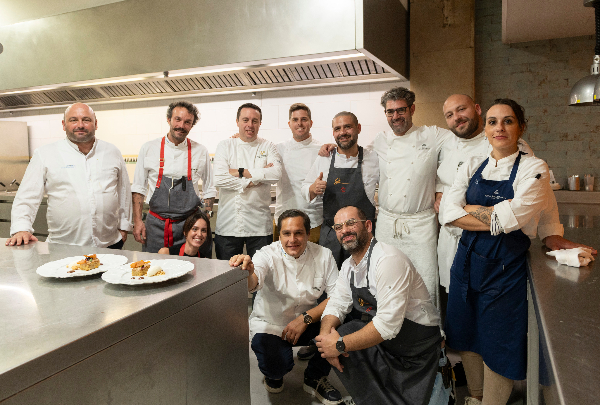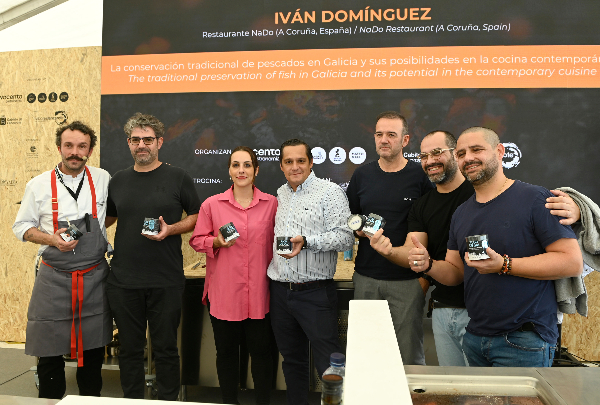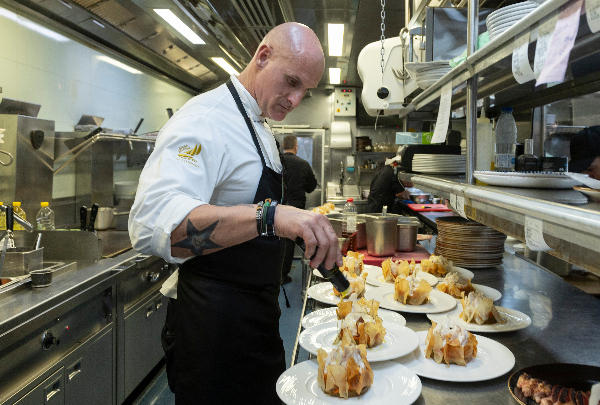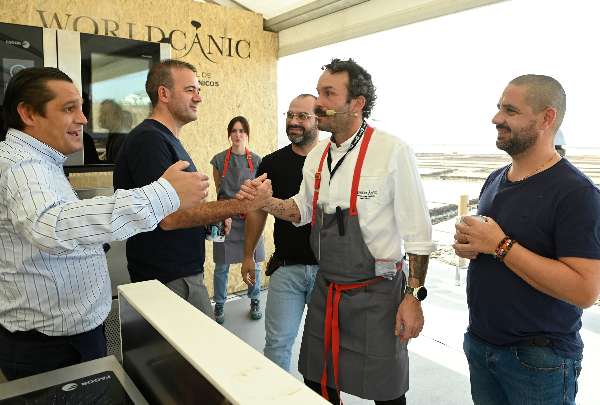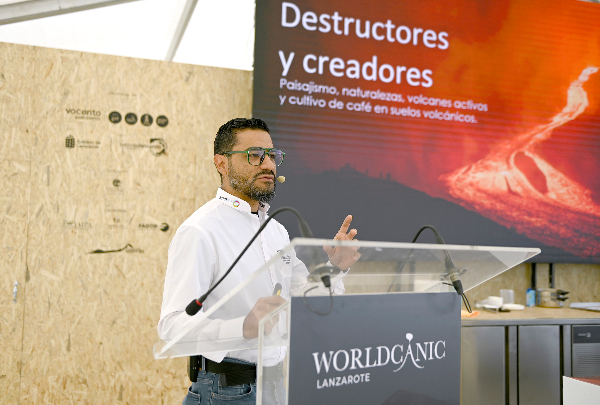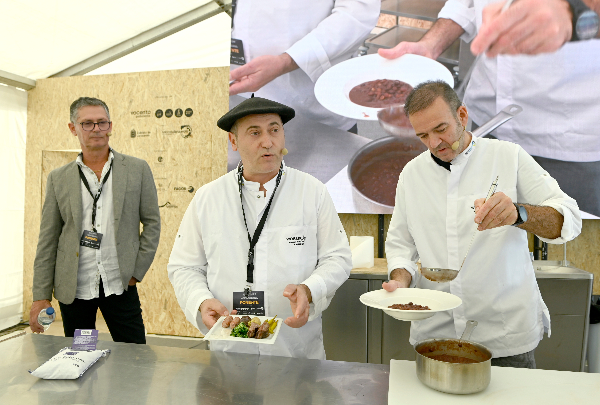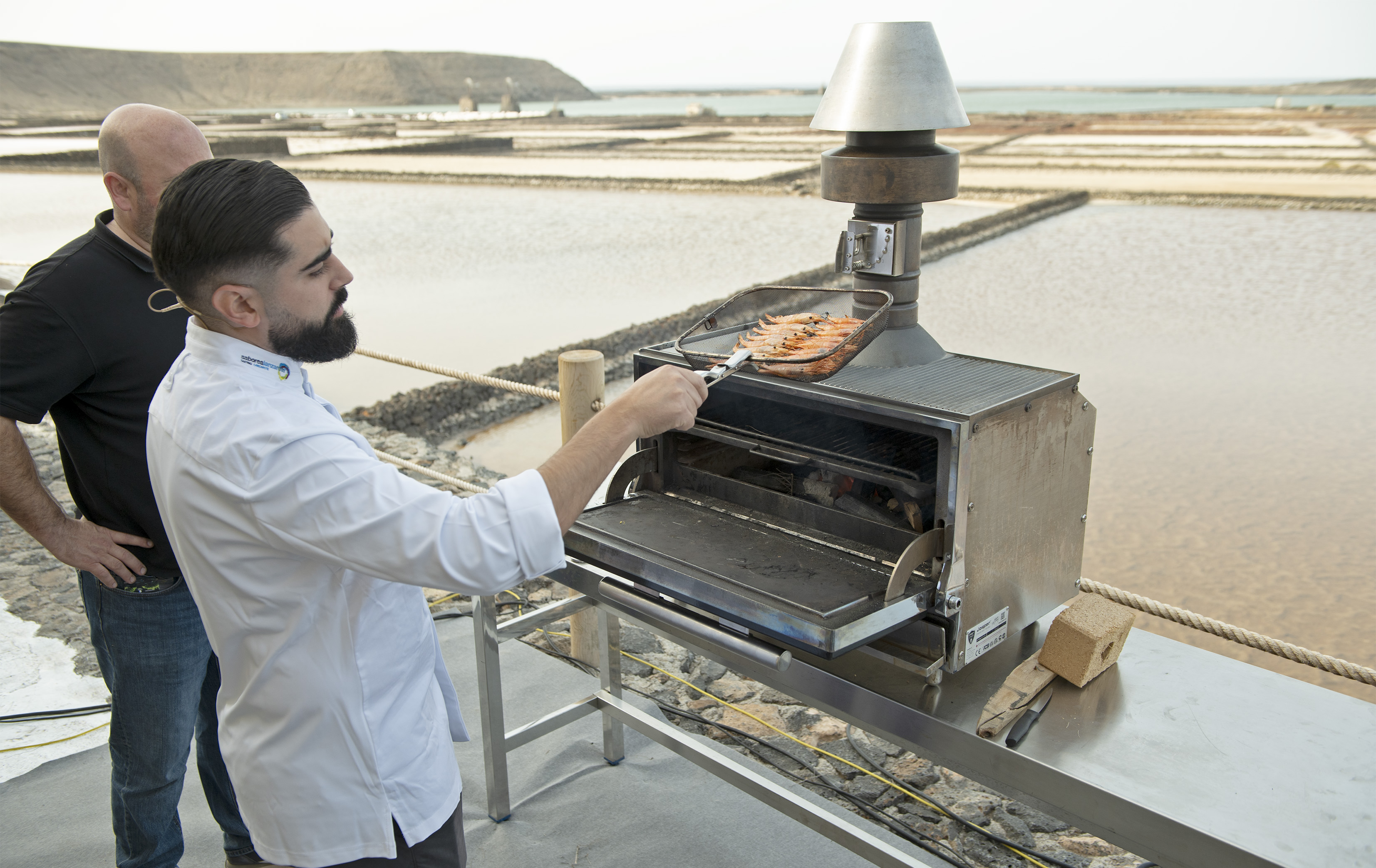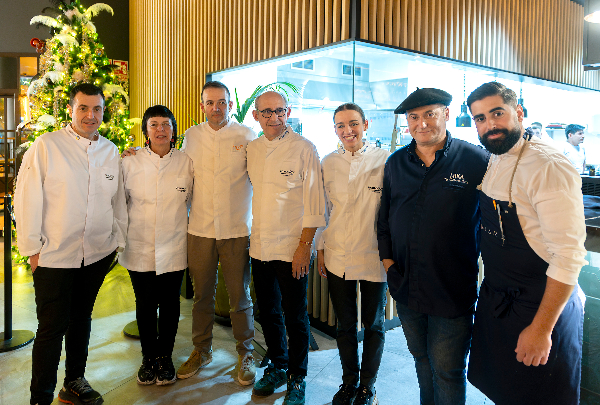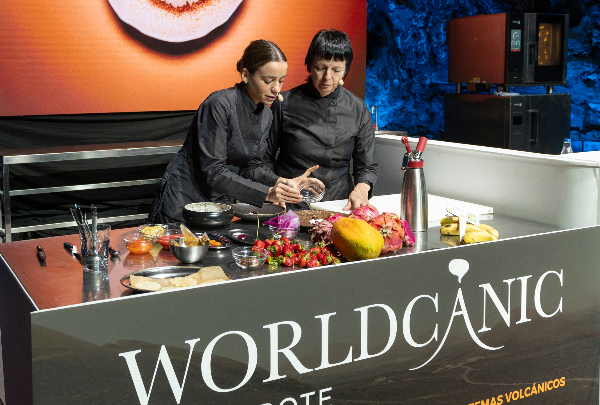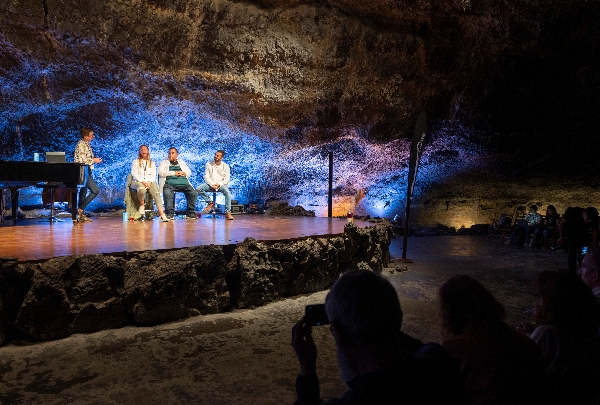News
New solutions for new times
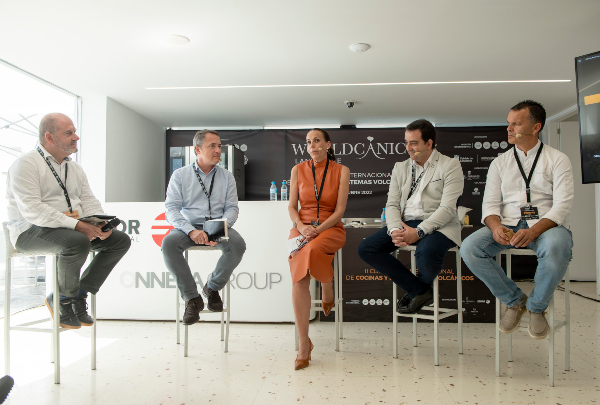
Lluís Pujol, manager of Saborea España; Eva María Masías, mayor of Ciudad Real; José Valle, president of the Chamber of Commerce of Lanzarote and La Graciosa, and Juan Carlos Clemente, gastronomy adviser, shared the Worldcanic table to discuss how gastronomy has emerged as an attraction for tourist destinations.
Under the guidance of Benjamín Lana, head of the Vocento Group's Gastronomy division, Lluís Pujol, Eva María Masías, José Valle and Juan Carlos Clemente discussed how the tourist industry has developed in recent years.
“Twelve years ago we set up Saborea España in Madrid, because we realised that a country like ours, with indisputable product quality, did not have the right kind of promotion. Sustainability, territory, and an offer based more on the actual experience are what bring in a more interesting proposition for tourists. In relation to this, gastronomy is now being reconsidered as an attraction at almost all tourist destinations", explained Lluís Pujol, manager of Saborea España.
This was echoed by Eva María Masías, mayor of Ciudad Real, who claimed this was one of the reasons why they had joined the body, which now has more than 24 destinations. Ciudad Real is located between two volcanoes, and the focus on produce and territory is heading in this direction. In their case, they have linked in to the world of wine, because, according to the mayor, it has "the world's greatest vineyard". It is not just wine, but also saffron, La Mancha lamb and game (rabbit, partridge and venison) which form part of their gastronomic attraction.
José Valle, president of the Chamber of Commerce of Lanzarote and La Graciosa, explained how the pandemic forced them to reflect on the tourism model in recent years. “We realised it wasn't quite right, and that we had to rethink it. We needed a model more in line with the experience, and that meant concepts such as gastronomy, the surroundings and the landscape. This transformation also meant raising awareness among businesses. I have to say that Lanzarote is not a destination that can expand any more, and that we're at a turning point. In this transformation towards the experience factor, we must work with km 0, trying to bring together the primary sector, the gastronomy sector and the tourist sector, produce a brand, and showcase the produce".
In the opinion of gastronomy adviser Juan Carlos Clemente, the idea is good on paper, but he feels it is not easy to carry it through. “At a hotel, you'd have to consider whether the km 0 concept is real. This is a sector with a high demand for produce, which had been focusing on haute cuisine, with imported products. It's difficult for local producers to satisfy the high demand of a hotel. We also have to be very honest about what the km 0 product is, because here there are a lot of crops which are not local. And then you have to make customers understand that we don't serve a product because it's not in season. If you tell guests that this morning they can't have orange juice because they're not in season, you may find that they say they don't care, just import the oranges like everyone else does".
Another issue arising from the discussion table was finance. Saborea España was given 850,000 euros to activate a project to add the primary sector to the tourist sector, no easy task. “European funds have arrived on the scene suddenly, distribution is complex, they're not moving at the right pace, and the recipients don't always know how to handle them. Different languages are used between different sectors, and it's up to the authorities to boost communication and training. Some people don't have to, because there's no reason why they should know how to do it, how to sell a product, how to protect it ...".
Eva María Masías feels that the solution is training, along with knowledge of the product, because "if you don't know about something, it's very difficult to sell it". In the case of Ciudad Real, they have created five routes which are seeking exactly that: to give tourists the chance to get acquainted with the territory. “They're also important in terms of showcasing the product and understanding its price”.
Lana asked about competition between islands, in this case this Canary Island - all of it - with respect to the other islands. José Valle replied that they are working on it. The idea is to create a common destination so that tourists do not just stay on the same island, but can work out a route through all of them or some of them. “It's also a way of getting to the long-haul tourists. Tourists from the United States, for instance, who are above all looking for an experience ".
Another aspect mentioned by Juan Carlos Clemente is how to narrate the island, how to talk about it. “There's a big difference between when you've experienced it, and when you've learned about it. And another aspect is the tools to get to the foreign tourists - the language, for example - at the end of the day, what you're selling is authenticity".
The conclusions of the discussions were unanimous. The new tourist model has to target identity, territory and product, seeking out a profile looking for excellence and an experience. And in this respect gastronomy and communication among its agents are key factors.

